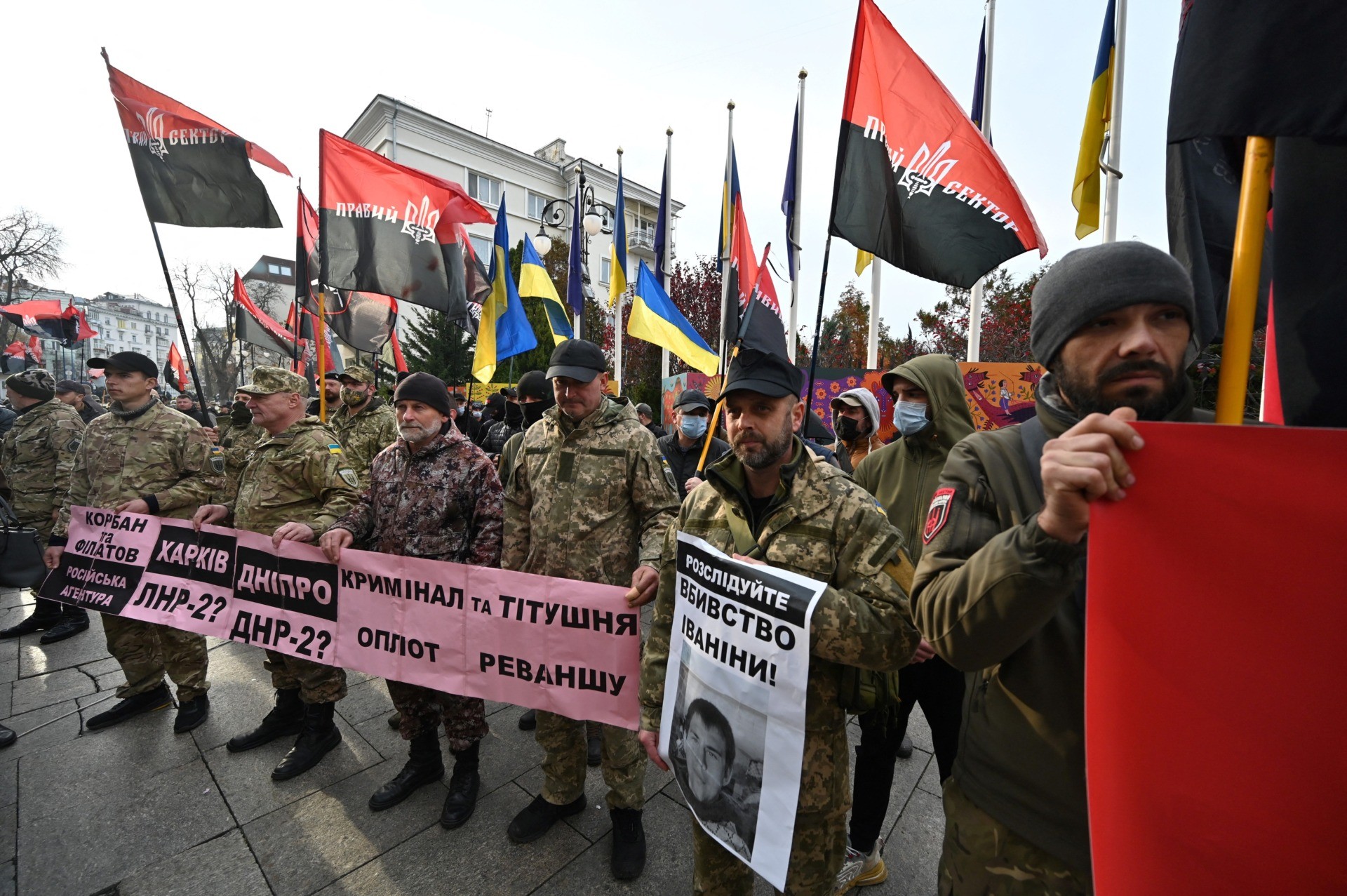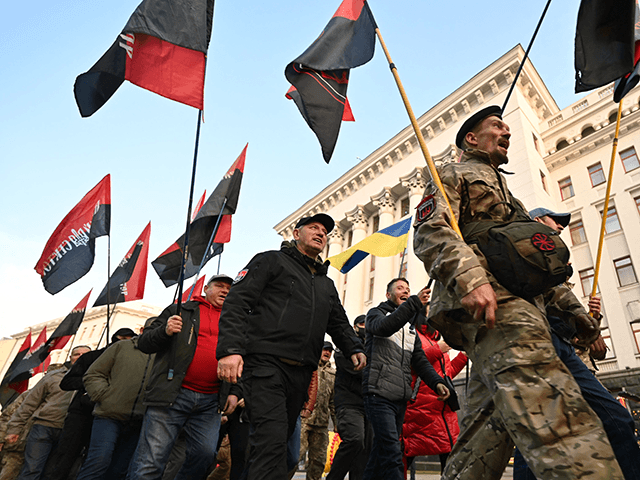As with so many other world leaders, Ukrainian President Volodymyr Zelensky is facing one of his toughest political challenges due to the Wuhan coronavirus.
Over a thousand people rallied in Kyiv on Wednesday to protest emergency restrictions imposed by Zelensky’s administration as coronavirus cases surged to record daily highs.
Radio Free Europe (RFE) reported the demonstration near Ukraine’s parliament building was orderly but spirited, with protesters waving signs that read “No to Vaccination,” “Say No to Covid Passports,” and “Say No to Covid Genocide.”
According to the Associated Press (AP), the demonstrations were large enough to block some of Kyiv’s central streets.
Many of the protesters expressed reservations about the safety and reliability of the coronavirus vaccines. Ukrainians have access to vaccines from Pfizer, AstraZeneca, and China’s Sinovac. One of the banners they carried read, “No to Medical Experiments, Protect Our Children.”
“I do not want to be vaccinated with a vaccine developed in an emergency, it does not give me any confidence,” one protester told AFP.
“We are not addicts to prick ourselves every six months!” declared another, referring to the likelihood of booster shots after vaccination. On the same day the Ukrainian protest was held, Canadians inoculated with AstraZeneca’s vaccine were advised to get booster shots.

Participants of the war with Russia backed separatists on the east of Ukraine, activists of Right Sector, far-right movement hold placards and flags during their rally called “Stop the creeping occupation!” outside the office of Ukrainian President Volodymyr Zelensky in Kiev on November 4, 2021. – Protesters warned the authorities about the danger of increasing separatism in the regions bordering Russia which might undermine the stability and territorial integrity of Ukraine. (Photo by SERGEI SUPINSKY/AFP via Getty Images)
The AP spoke to demonstrators who seemed particularly incensed by the idea of needing vaccination passports to move around their own country.
“The authorities will only aggravate the situation further. You have the right to move freely around the country, this is everyone’s right,” said ex-lawmaker Nadiya Savchenko, who was arrested for trying to use fake vaccination papers at an airport recently.
Some protesters were also angered by a rumor that microchip tracking devices are secretly included with coronavirus vaccinations.
The previous day, Ukraine reported 23,393 new coronavirus cases and 720 deaths. Only about 17 percent of Ukrainians are vaccinated, so the government ordered compulsory injections for many state employees by November 8 and began requiring proof of vaccination from air and ground travelers. Vaccine certificates are required to entire most public venues in “red zone” districts with especially high coronavirus case levels.
“The burden of this wave, or how great it will be for Ukraine, will depend on the responsible behavior of each of us,” Deputy Health Minister Ihor Kuzin declared on Wednesday.
Kuzin’s superior, Health Minister Viktor Lyashko, was openly contemptuous of vaccine hesitation at a press briefing quoted by the AP.
“The anti-vaccination spirit quickly disappears in intensive care, and fake certificates do not work there. Calls not to get vaccinated are, in my opinion, a mockery of our doctors and families who have lost their relatives,” Lyashko said.
Ukraine’s coronavirus surge is part of a spike in cases all across Europe and Central Asia. World Health Organization (W.H.O.) regional director Hans Kluge said on Thursday that Europe is “back at the epicenter of the pandemic, where we were one year ago.”
The New York Times (NYT) reported last month that Ukrainian health officials are “struggling with two interconnected and vexing problems”: the above-mentioned skepticism about vaccines and booster shots, and “illegal schemes selling fake Covid [coronavirus] credentials that people use to get around restrictions intended to slow the virus’ spread.”
The NYT found Ukraine’s black market in bogus vaccination paperwork thriving in a country that has “struggled for years with corruption in many spheres of public life.”
The health ministry believes at least 15 Ukrainian hospitals are selling fake certificates, and apparently some of the buyers have been logged into hospital databases as bona fide vaccinations by corrupt or bamboozled officials, so the real national vaccination rate is probably even lower than the official 17 percent figure.
Zelensky wholeheartedly embraced vaccination, warning in an October interview that the only alternative for breaking the coronavirus wave in Ukraine would be lockdowns that the public would hate even more.
“There are two ways at this crossroads: vaccination or lockdown. Every day we face this challenge and this choice. I am against lockdown as much as possible – because of the economy. Because now there is no lockdown, and we see the numbers – we are growing. Our GDP is growing, the budget is growing, the filling of the budget this year is more than planned,” he said.
Zelensky’s poll numbers have reportedly declined amid the coronavirus surge, but as of late October, he remained one of the most popular figures in Ukrainian politics and polled well ahead of his likely challengers. Zelensky pulled 24.7 percent among what U.S. political analysts would call “likely voters” in an October 15-18 survey by Ukrinform, compared to 15.6 percent for his closest challenger, former president Petro Poroshenko.

COMMENTS
Please let us know if you're having issues with commenting.